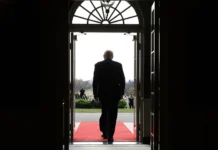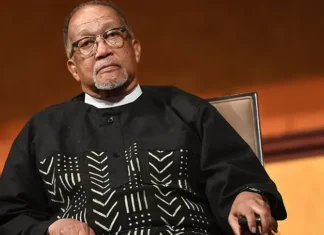
With the amount of vaccine misinformation and disinformation out there, it’s no surprise many Americans don’t plan on getting an updated COVID-19 vaccine. This growing skepticism is happening against a backdrop of shifting political and cultural dynamics that could significantly impact public health efforts in the coming year.
In a new Pew Research Center survey, 60% of Americans say they won’t get an updated 2024-2025 COVID-19 vaccine, which is available in pharmacies and doctors’ offices right now. Republicans are the most likely to say they won’t get the vaccine. But Black Americans are the most likely to have already received the updated vaccine, ahead of cold and flu season.
Why does this matter? Getting the annual COVID-19 vaccine can help protect Americans from long COVID, heart disease, and other respiratory complications. But forgoing vaccination, can make people more susceptible to avoidable illness.
In November, FrameWorks Institute, a nonpartisan think tank, held a virtual event that examined the rise of anti-public health narratives in American discourse. Dr. Julie Sweetland, a senior advisor at the institute, provided an in-depth analysis of the growing influence of anti-vaccine messaging and its implications, particularly as Robert F. Kennedy Jr., a prominent anti-vaccine advocate, has been nominated to lead the U.S. Department of Health and Human Services. The event highlighted the cultural dynamics enabling such rhetoric to gain traction and raised questions about the future of public health leadership in the United States.
Some common mindsets or cultural beliefs Americans across the country hold include the idea that nature is pure, modern technology is a threat, and the system is rigged. Regardless of any demographic or political affiliation, Sweetland said, these mindsets help explain why Americans are becoming less trustful of science and government.
“The majority of Americans agree with the idea that the system is rigged,” Sweetland said. “This is not a right wing or left-wing sentiment. This mindset can help explain why the ideas that RFK puts forth resonate across opinion groups. Many of his opinions rest on and reinforce the mindset that the system is rigged.”
Related: Trump Has Black Americans Worried About Health Care
What does this mean? The belief that a powerful few are rigging the government, health care system, and economy to benefit themselves at the expense of the rest of Americans isn’t necessarily right or wrong. But it has influenced the way Americans think about medicine, vaccination, and the health care system.
In the Pew report, most Americans are choosing not to get the updated COVID-19 vaccine because they don’t think they need it and are concerned about side effects. These are the top two reasons regardless of age, party, race, and ethnicity.
“Many of these mindsets that RFK is speaking to, or reinforcing are long standing,” Sweetland said. “I think the pandemic certainly made these mindsets stronger, but it didn’t create them. There was a COVID effect on these mindsets.”
In a 2021 study researchers found that Republicans were more likely than Democrats to believe anti-vaccine misinformation. During the height of the COVID-19 pandemic, science became more and more politicized which directly contributed to the uptake of vaccine hesitancy, the report states.
Even now, 84% to 85% of Republicans ages 18 to 64 don’t plan to get an updated 2024-2025 COVID-19 vaccine. Which is in stark contrast to 34% to 47% of Democrats in the same age groups who don’t plan to get the vaccine.
Bottom line: Vaccines are proven to be a safe and effective way to prevent avoidable illness and death. Navigating vaccine misinformation isn’t easy but it’s better to be factual informed than misled by the overwhelming amount of vaccine misinformation and disinformation.















